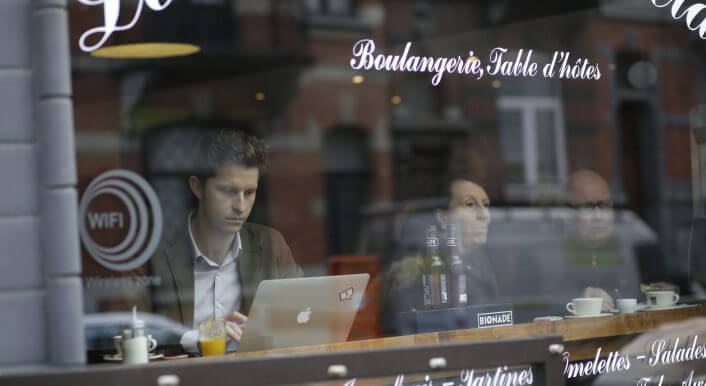Exclusive: TTIP-Leak
Prompted by the release of over 100 secret TTIP negotiating documents by CORRECT!V earlier this summer, trade commissioner Cecilia Malmström ruled that the detailed report of the 10th round of negotiations should be available only in a special reading room in Brussels. Barely anyone has seen it. In spite of this, we were able to acquire a copy of an official report on the 10th round of negotiations concluded in July. We are publishing the original document – because we still believe that transparency is essential for TTIP.

The Commission’s report summing up the 10th round of negotiations is nine pages long.
The main points are:
- many member states are concerned about the “tough negotiations”
- most areas under negotiation are at a standstill. The US and EU are moving forward at a snail’s pace. One of the main areas of contention, public procurement, is not even on the table yet.
- the issue of sustainability is not on the agenda.
- the Commission is very concerned about the leak of 100 documents by CORRECTIV, which, it claims, is weakening its own negotiating position.
But let´s take them one by one.
First: The “tough negotiatons”
EU member states such as France, Italy, Poland and Ireland expressed concerns about the “tough negotiations in all essential areas”, quotes the report.
This summer, EU and US negotiators had hoped to finish a draft of the treaty by the end of 2015, planning to have it ratified by the end of 2016, while Obama is still in office. In view of the many fundamental differences remaining, it is becoming increasingly doubtful, whether this ambitious time plan can be achieved.
Second: Standstill
The report also says that the key area of public procurement was not discussed: “Discussion in this area will take place at the level of chief negotiators or higher”. The Europeans, especially Germany and France, want EU firms to have access to public sector contracts in the USA. But the US has made no firm commitments in this area.
With regard to regulatory cooperation – the harmonisation of regulations in certain industrial areas – “negotiations are tough”. As we know from previous rounds, the US is unwilling to make commitments with regard to financial services. European negotiators want to cooperate with the US in the regulation of finance markets, but the US rejects this, claiming that their laws in this area are stricter than those of the EU.
There was progress in areas where both sides foresee gains – cars, pharmaceuticals, cosmetics and engineering, and also on the mutual recognition of professional qualifications.
The tenth round was devoted mostly to the services chapter. Again, both sides exchanged market access offers, which means that they presented the economic sectors where they are willing to open their markets, as well as listed relevant exceptions.
Hoewever, the Commission thought that “US offers did not contain any essential improvements”. The EU is familiar with the American endgame strategy: the best offer is laid on then table right at the beginning and it is only close to the end that the EU partner can hope for concessions.
There was no movement in other areas: “The US was defensive especially in the areas of marine services, air transport and mobility”. The US was also not forthcoming with regard to geographical indications, i.e. the protection of regional products (e.g.: can Camembert be produced in Kentucky?).
There was also no coming together on the question of energy. The US wants this to be negotiated under the chapter on services. The EU, pressured by member states such as Poland, Lithuania, Croatia and the Czech Republic, wants to have a special chapter on energy in the treaty. Background to this is the desire from EU member states to be able to import oil and gas from the US where energy costs are half what they are in the EU. But the Americans are reluctant to open their energy market.
Prompted by Germany, the Commission approved a “general discussion of patents”. This is an important issue for the German pharmaceuticals industry because a stronger patent law guarantees profits over a longer period.
Third: Sustainability
The negotiators have not discussed the theme of sustainability. According to the Commission’s report: “In the run-up to the negotiations both parties agreed to postpone a discussion of sustainability”. Critics of TTIP are missing a strong sustainability chapter from the treaty.
Fourth: The Leaks
There was a lot of discussion in this session of the Trade Policy Committee on the #openTTIP leaks by the CORRECTIV. The Commission called the publishing of around 100 original documents in July as “a breach of trust with the US partner”. In addition, this had weakened the EU’s negotiating position. Trade Commissioner Malmström directed afterwards directed that the protocol of negotiations from the 10th round should be viewed exclusively in the Reading Room of the EU Commission and would no longer be sent to national parliaments.
The original Protokol (in German) is available here.
We thank Gus Fagan for his contribution on the English translation.



